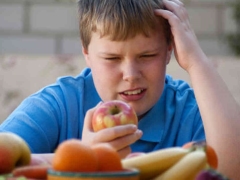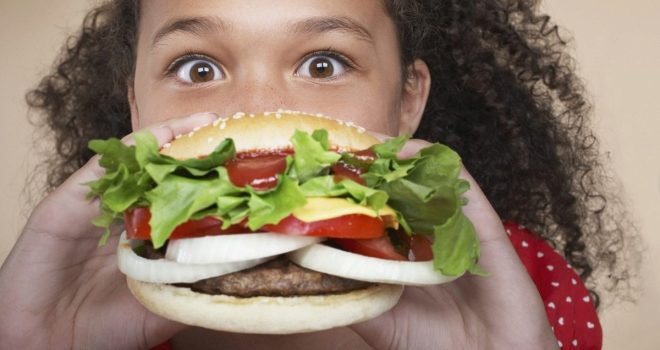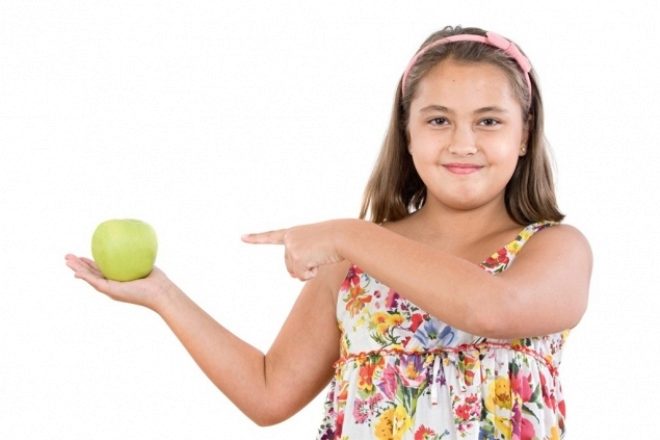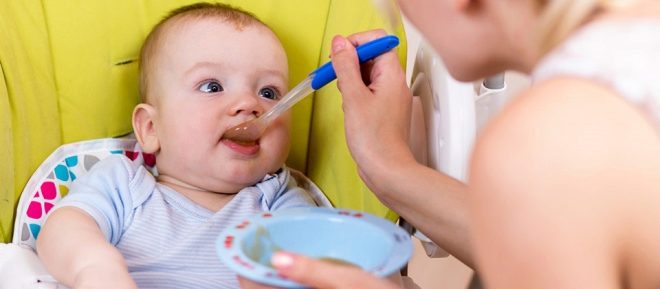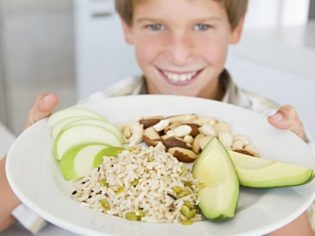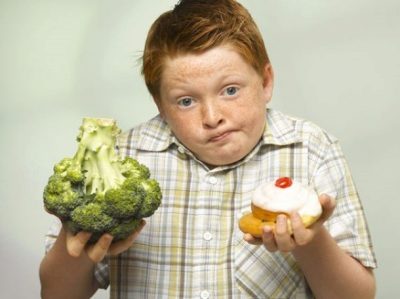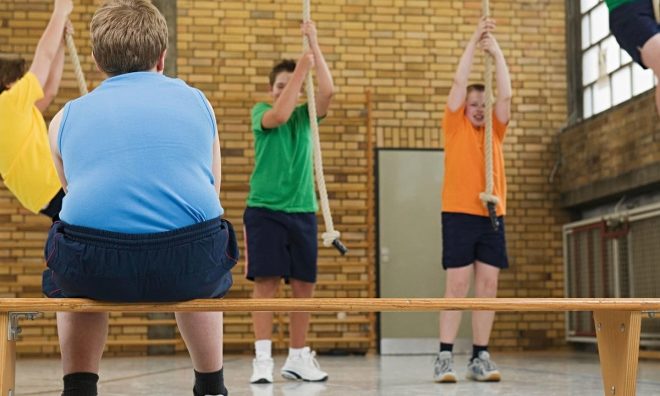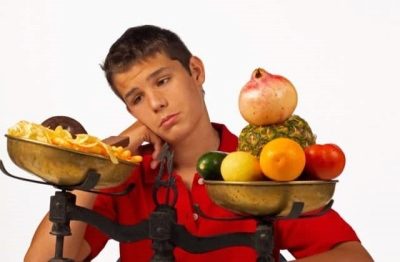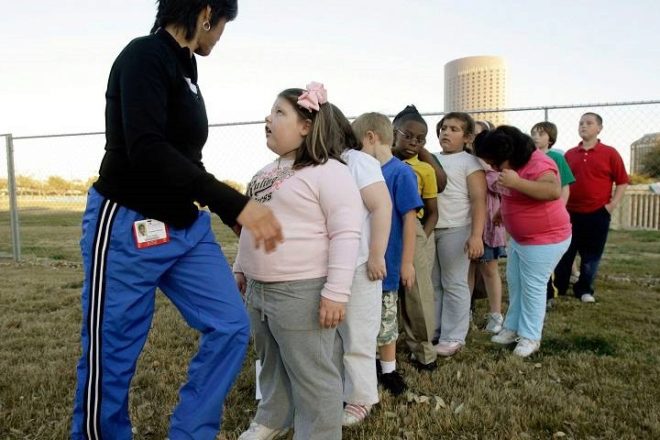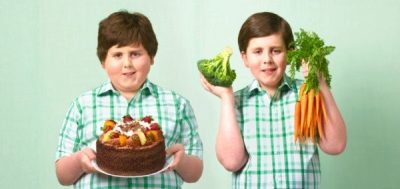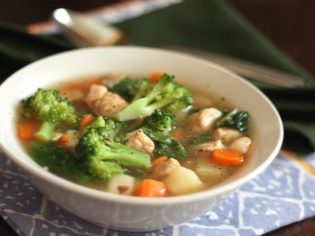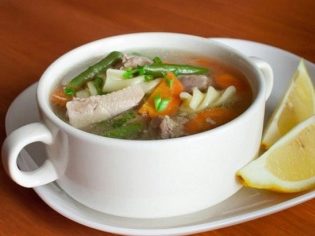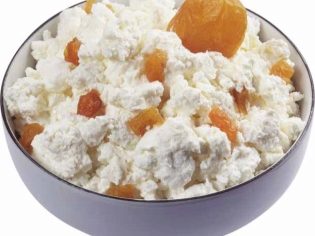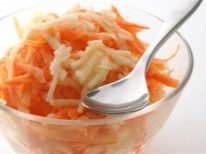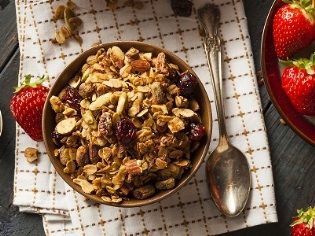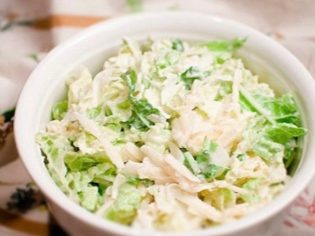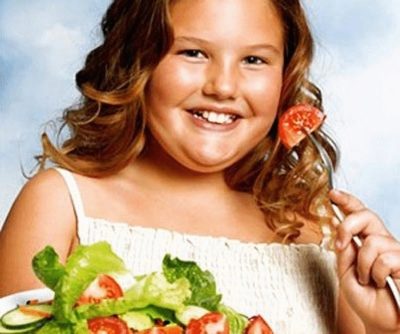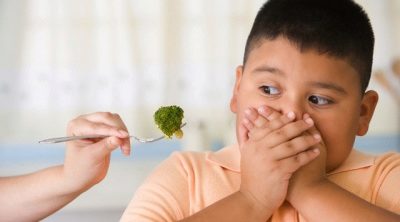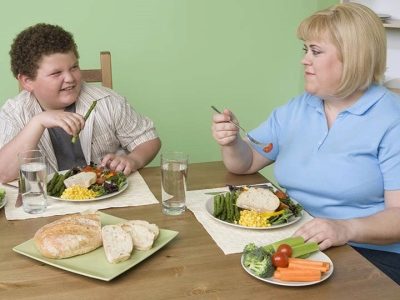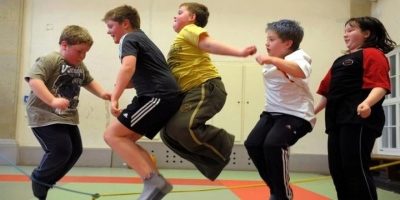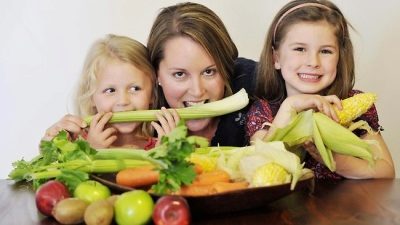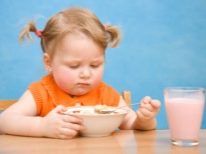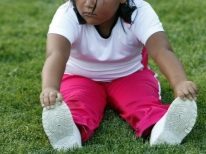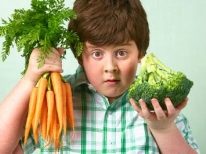Diet for overweight children without harm to health
Establish healthy eating habits in childhood. If a child consumes a lot of fatty or sweet food, inevitably after a while he easily gains extra pounds. Obesity in children and adolescents requires a completely different approach than in adults.
Principles
Given the peculiarities of the structure of the child's body and the functioning of all systems of the body, it is impossible to use adult diets. The child's psyche is very labile and significantly depends on age. Methods that will work for children of preschool age are completely unacceptable for schoolchildren, and even more so for teenagers.
The only age throughout life, when a person cannot become sick with obesity, is the period from the moment of birth to the first complementary food. The baby at this time receives food only through mom's milk. Breast milk is an excellent source of all nutrients, vitamins and trace elements in an ideal proportion for growth and development. It is 99.9% absorbed by the child's body.
After the introduction of complementary foods the number of full children increases markedly. Moms try to feed the baby as much as possible. Many explain this by the fact that they want to finish breastfeeding faster, because the baby is already getting lures. This is a fundamentally wrong belief.
All pediatricians in their opinion are unequivocal on the issue of breastfeeding. The longer you breastfeed your baby, the less he will be sick, and to a lesser extent he will be at risk of obesity. Lures up to 8 months are only auxiliary sources of nutrients, giving leadership to breast milk. Only closer to the first year of the child can reduce the number of breastfeeding and go on to eat regular foods.
All children's diets that are designed for weight loss are based on the same principles:
- Balanced diet. The correct ratio of nutrients with the predominant inclusion of protein foods (up to 50% of the total diet).
- The granularity of power. It is set depending on the age of the child. Children up to a year should eat every 2-2.5 hours. From one to two years - 5-6 times a day. From 2-3 years old - 5 times a day. After three years - 4 times a day.
- Daily calorie. It is also calculated using special tables (according to the baby’s age).
- The right combination of dishes, exclusion of products that promote weight gain.
We consider age
When making a diet, be sure to pay attention to the age of your baby.
Children under the age of five years are strictly prohibited all types of weight loss. At this time, all body systems are still being improved and changed.
Abrupt cancellation of some foods in the diet of such a kid can lead to an imbalance of nutrients, which may adversely affect the metabolism in general. In the future, the child will have big problems: it is difficult to normalize weight if the metabolism was disturbed.
If you observe that your child started to get fat at the age of 5-6 years, pay attention to what you give him to eat. At this age, you should completely eliminate harmful sweets and carbonated drinks. A huge amount of sugar provokes sharp jumps of insulin, which can lead to obesity and even diabetes.All cakes, sweets and chocolates for overweight children are strictly prohibited! Only natural fruits and berries. Teach your child to eat them instead of dessert.
Children aged 7-8 years should exercise more. This time - the beginning of school. Earlier, a more active child sits more at his desk and at home, doing homework. This leads to childlike physical inactivity and promotes weight gain.
Be sure to take the child to the sports section. This will help to increase the physical activity of the baby. After physical aerobic exercise, metabolism is activated, and those extra pounds begin to literally burn! Choose sections strictly at will of your child. In no case do not force the child to attend classes against his will. Better pick a new sport that will appeal to him and will bring joy.
Children at the age of 9, 10 and teenagers usually spend a lot of time at the computer playing computer games.
The second important reason for gaining weight can be an excessive love for fast food and fatty foods. Children of this age really like various snacks and chips with bright salty tastes.
The abundance of flavors strongly whet the appetite, and they can eat a huge pack in just a couple of minutes. Such nutrition in combination with physical inactivity contributes to the deposition of extra centimeters on the hips and abdomen.
Contraindications
If you are going to choose any kind of diet for weight loss, be sure to consult your doctor. A child may have various diseases in which losing weight will be simply dangerous to health.
Among the frequent contraindications for weight loss:
- Exacerbation of chronic diseases of the gastrointestinal tract (chronic gastritis, colitis, enteritis, pancreatitis and many others).
- Cardiovascular diseases (arrhythmia and other cardiac arrhythmias). In such cases, the diet is prescribed by a cardiologist.
- Type 1 diabetes. In this disease, endocrinologists prescribe insulin injections. It has a lipotropic effect, that is, splits adipose tissue. Children with diabetes are strictly forbidden to use any type of diet. They use a special system of counting carbohydrates and bread units.
- Malignant and benign tumors. In such cases, it is very important sufficient intake of nutrients to strengthen the work of the immune system. The use of conventional diets is prohibited, only special medical nutrition for the purpose of oncologist.
Is extreme weight loss harmful?
Lose weight quickly, the more rapidly, for a child's body is strictly prohibited! To lose weight quickly without harm to the body will not work under any circumstances. Fat splitting is slow.
In a month when using diet and exercise can burn only 1-2 kg of fat. Everything else is water or muscle. Recover lost muscle tissue is much more difficult than losing.
It is important to remember that losing weight at home should be slow, but correct. Be patient and support your baby at all stages of losing weight.
Types and types of diets
Everything diets can be divided into several types:
- Low calorie. They imply a reduction in daily calories. The body perceives a lack of calories as a stress reaction and begins to activate all forces to maintain the desired level of energy. Fat depots are an excellent source of energy. With a decrease in calories the child loses weight.
- Monotone low-calorie. These diets include eating the same foods for a long time (for example, only buckwheat or cottage cheese). Such diets are strictly prohibited for use in children. Fasting days are allowed, but only for teenagers over 13 years old. This can only be done once a week. At this time, the child can be offered for the whole day 800 g of cottage cheese and a liter of kefir. Before prescribing monodiet, be sure to consult with your pediatrician or endocrinologist.
- Proper healthy eating. Includes split meals every 3-3.5 hours (only authorized products). All fast food, sweet drinks, fatty and fried foods, chocolate bars and chips are strictly prohibited. Such food should include a lot of healthy protein foods, cereals, fresh fruits and berries according to the season, an abundance of vegetables.
Sample menu for the week
Monday
Breakfast: Homemade granola from multi-cereal flakes with milk.
Lunch: Banana.
Dinner: Vegetable soup with chicken. Salad of tomatoes and cabbage, seasoned with yogurt.
Tea time: A glass of low-fat yogurt.
Dinner: Peking cabbage salad with greens and turkey meatballs.
Tuesday
Breakfast: Cottage cheese with dried fruits.
Lunch: A handful of walnuts.
Dinner: Soup with mushrooms and vegetables.
Tea time: Rice pudding with pear.
Dinner: Hake meatballs with cucumber and tomato salad, buckwheat side dish.
Wednesday
Breakfast: Fruit salad with wholemeal flour crackers.
Lunch: An Apple.
Dinner: Vegetable and turkey soup.
Tea time: Grated carrot with raisins and yogurt.
Dinner: Baked chicken with fresh vegetable salad.
Thursday
Breakfast: Cottage cheese with dried apricots.
Lunch: Dried fruits and green tea.
Dinner: Dumplings from white fish with boiled rice.
Tea time: Low-fat kefir.
Dinner: Chicken with cabbage salad.
Friday
Breakfast: Oatmeal cupcakes with kiwi.
Lunch: Pear.
Dinner: Chicken balls with tomato salad.
Tea time: Low-fat cottage cheese with yogurt and strawberries.
Dinner: Braised cabbage and chicken cutlet.
Saturday
Breakfast: Buckwheat Flakes with Boiled Quail Eggs.
Lunch: A handful of almonds.
Dinner: Tomato salad with beef meatballs.
Tea time: Grated carrot with green apple.
Dinner: Steamed white fish with boiled rice.
Sunday
Breakfast: Homemade Granola with Berries
Lunch: Low-fat kefir.
Dinner: Mushroom noodles with cucumber salad.
Tea time: Kiwi.
Dinner: Cabbage and turkey salad.
Should I use vitamin complexes?
The appointment of any vitamin preparations should be made only by a pediatrician. Constantly taking vitamins to the child's body is not required at all. Even during weight loss with proper nutrition comes a sufficient amount of all the necessary vitamins and minerals.
Vitamin complexes should be taken only in the period of colds. This will help strengthen the immune system and prevent infection.
How to stimulate a child?
Making the child follow a diet is an absolutely stupid and totally meaningless exercise. The psyche of children under 5 years old is arranged in such a way that they copy the behavior of adults and peers. They still do not realize why and how this happens, but in their behavior they are guided by what they see.
If the family decided to eat the wrong and unhealthy foods, get involved in fried and fatty foods, then the child perceives this food as tasty. Explain to children what is useful - the task is super-achievable! Do this and not worth it. Just show with an example that healthy healthy food can be delicious. If you have a salad and a slice of a low-fat bird on your plate, and not a pork chop fried in butter, the child will eat the same way. Eating habits are best to vaccinate from early childhood.
Often parents do not know how to put the child on a diet. Nobody needs to plant anywhere! Just review your baby's diet by adding the right and healthy foods to the diet. Throw out all the ready-made semi-finished products and meat sausages from the refrigerator. Cook your baby yourself, do not add a lot of oil when cooking. Bake or cook in the oven. Teach your child the right eating habits (from a very young age). In this case, the problem of obesity will be irrelevant to him.
How to help psychologically?
Support your baby at all stages of losing weight. He is a great fellow that achieves such results.Reinforce the positive attitude of small gifts. Repeat the interests of your child. If the kid loves to draw, give him a beautiful coloring or a set of paints for dropped pounds. In short, everything that he likes!
Come up with a reward system with your baby. It can even be printed and hung on the fridge. For every 2 kilograms - going to the cinema, for every 5 - visiting the zoo. This will help you get closer to your child and gain his trust.
Exercises to help
An excellent option in the process of losing weight is exercise. If the child does not want to go to the sports section or he is sufficiently closed in himself and prefers to be more at home, then you should do the exercises at home.
For children, it is better to choose all the exercises from the practice of physical therapy. They are safe, have been designed specifically for babies and will definitely not harm a small body.
A few simple exercises to remove the stomach:
- Ask the baby to lie on the floor. Pre-fit a special mat under your back. It should be soft enough, but at the same time elastic, so that the baby does not hurt his back. Legs bent at the knees, arms behind the head. On the exhale - the rise of the body to the knees. Head, back and neck are one straight line. Inhaling - return to the starting position. It is necessary to do 2 approaches at least 15 times.
- Starting position standing. Hands on the belt. The back is flat. While inhaling, the baby must draw the stomach in and hold the breath. Count to 5, then exhale sharply. Repeat should be 10-15 times in two approaches.
- Exercise for oblique abdominal muscles. Starting position - lying on the rug. Legs bent at the knees, hands behind the head. On the exhale, the baby raises the body and makes a slope to the right foot. On inspiration - returns to its original position. Then the tilt to the left leg is repeated. To do 15 times in each direction.
Termination
As the ancients said, diet is a way of life. This is true. Any proper diet can also be called a diet, only curative. The use of such a healthy diet throughout life will help to maintain not only normal weight, but also health (as a person will not accumulate a lot of chronic diseases).
Tips
To normalize weight and keep your child in excellent physical condition, use the following tips:
- Sure to control diet baby Make up the menu in advance, it is better separately for each week. Follow all principles of proper nutrition. Do not forget to divide meals by time. To lose weight, the baby must eat at least 4-5 times a day.
- Include in the diet more vegetables and fruits. They have a small calorie content, but perfectly saturate. In combination with protein foods give the body energy for a long time and without a sense of heaviness.
- Watch out for how much liquid your baby drinks. Often, with a decrease in water consumption, metabolism slows down markedly. Products are poorly eliminated from the body, which contributes to a more pronounced weight gain.
- Instill a love of physical exertion have your baby since childhood. For a child, activities should become a habit - how to brush your teeth in the morning or wash your hands before eating.
- Form the right eating habits. Show with your own example that healthy and healthy food is extremely tasty. Do not keep at home high-calorie chips and sweet soda. In your fridge should be only healthy foods.
- Become a friend to your child. This will help you to motivate him more easily during weight loss and to achieve good results. Replace the habit of eating the wrong food with others - for example, the whole family going to nature or visiting a swimming pool or water park.
Diet for children should be chosen strictly individually, taking into account the existing features of the body and chronic diseases. Gradual weight loss over several months will help to lose the accumulated pounds and strengthen the health of the baby.The main thing in any process of losing weight is a positive attitude and patience.
Recommendations on diet for children with excess weight will tell Dr. Komarovsky in the video below.
